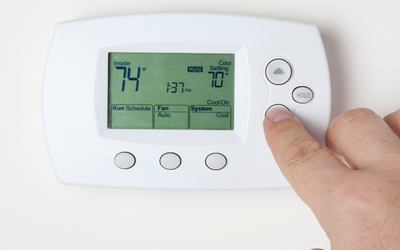- Help & Advice /
- Everything you need to know about Heating Controls
Everything you need to know about Heating Controls
What to consider when upgrading your heating controls

What different types of heating controls are there?
- Timer or programmer – These devices allow the user to control when the heating and hot water comes on and off, allowing you to customise heating schedules based on the behaviour of the occupants i.e. turning on 1 hour before you wake up in the morning. It also gives you the option to set different times at the weekend. Homes that are better insulated will warm up quicker and cool down slower. If you have a combi boiler, these devices won’t affect the hot water systems. If you have a hot water tank, you will be able to control when the water heats up. There might also be a thermostat on the hot water tank itself too.
- Room thermostat – These devices are usually found in the hallways of individual rooms. They track the temperature, compare it to the target temperature that the user sets and send a signal to the boiler to either turn on or off. Thermostats are usually set to between 18C and 21C. Modern heating controls might combine a timer with a thermostat, allowing you to set different target temperatures at different times of the day.
- Thermostatic radiator valves (TRVs) – These are the dials found attached to the inflow pipes of radiators. They allow the user to control the temperature of the room by controlling the flow rate of hot water into the radiators. They can be set on a room-by-room basis dependent on which rooms are in use at certain times of the day. They can also be used to turn off radiators completely, although this is not recommended for long periods of time, as there is the risk that cold rooms will develop damp.
- Smart controls – There have been advances in technology recently that allow the user to control the heating in their homes through smartphone apps. These typically allow you to turn the heating on/off, the hot water on/off and adjust the temperature from wherever you are if you have an internet connection. These have the advantage of giving the homeowner the power to adapt the heating schedule to their behaviour in real time i.e. if you are running late at work, you can cancel the heating coming on until you are on the way home. Some apps can also use GPS to track where the user is and turn on when you are approaching your house, or adapt the heating schedule based on current weather conditions. Brands such as Hive, Tado, Climote and Nest offer such control.
Can I install heating controls without replacing my boiler?
Yes, you can. In fact, if your boiler is older and less efficient, you can expect to see greater savings on your energy bill compared to a modern boiler.
Are there minimum standards for heating controls?
There are no minimum standards for existing systems, however the Competent Person Scheme allows installers to self-certify their work as compliant with Building Regulations. They notify the local authority on your behalf and can issue a certificate on completion that can be used for compliance. This will show up on a solicitor’s Local Authority search when you sell your home.
Are my current controls out-dated?
It is recommended that if your heating controls are over 12 years old, they should be replaced.
How do I know what temperature to set the thermostat to?
An easy way to find the best temperature for you is to set a low temperature at first e.g. 18C and increase it by 1C per day until you are comfortable.
Is an in-built or a wall mounted thermostat better?
An in-built control is convenient to install when the walls are finished. However, a wall thermostat is a more accurate way to control the room temperature, is more convenient to use, and has a broader selection of models.
How much does a smart thermostat cost?
thermostat cost? The device will typically cost between £100-200, while an electrician will typically charge around £40/hour. The payback time can range from 2.5 years to less than a year, it all depends on the initial cost of the device and how effectively it is used.
How long do they take to install?
This tends to depend on the complexity of the heating and hot water system, and the product being installed, however your electrician should be able to give you some idea about a timescale, especially if they are registered as a competent installer.